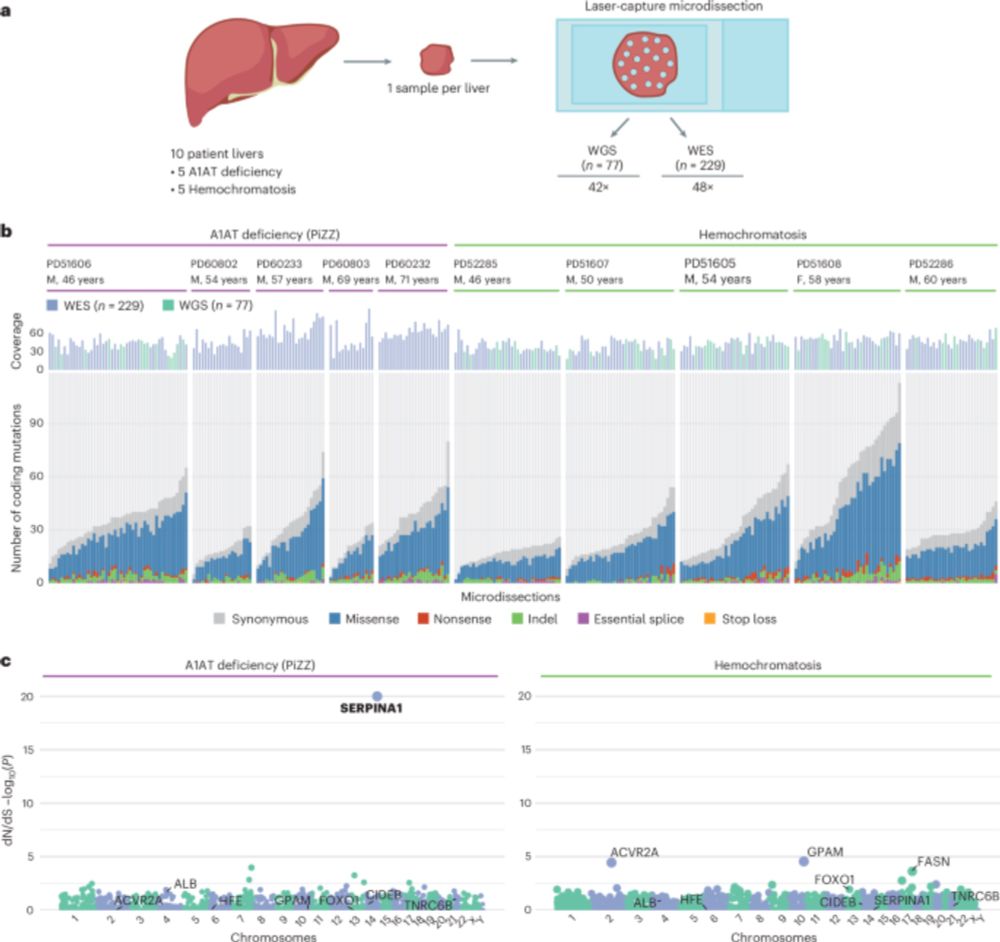Matthew Neville
@mattneville.bsky.social
93 followers
100 following
18 posts
Postdoctoral scientist @ Sanger Institute in Cambridge, UK. Sperm sequencing, de novo mutation, and somatic evolution.
Posts
Media
Videos
Starter Packs
Reposted by Matthew Neville
Reposted by Matthew Neville
Aylwyn Scally
@aylwyn-scally.bsky.social
· May 16

The impact of ancestral, genetic, and environmental influences on germline de novo mutation rates and spectra - Nature Communications
Here the authors analyze de novo mutations in >10,000 parent-offspring trios and find that ancestry and smoking independently associate with mutation rate, but that common genetic variants likely c...
www.nature.com















